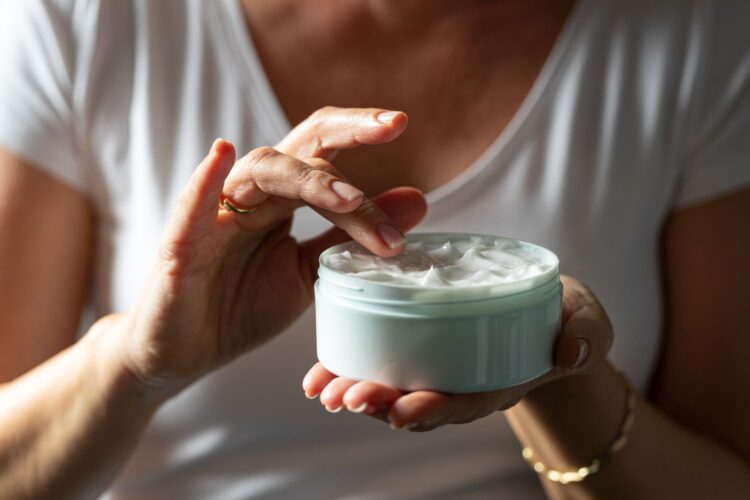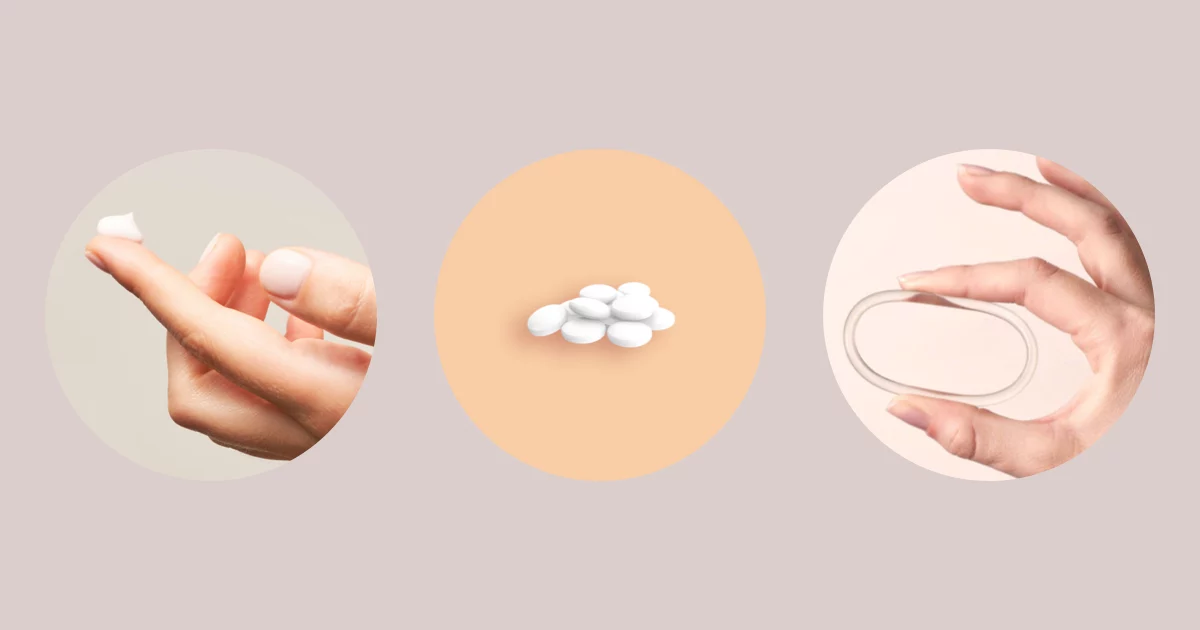Maintaining vaginal health means keeping the sensitive mucosal tissues lining the vagina and vulva clean, well-lubricated, supple, and free of infections. When these tissues are healthy, they contribute to comfort, sexual enjoyment, and overall quality of life.
Good intimate health depends on protective secretions, balanced bacteria, an optimal pH level, adequate blood flow, responsive nerves, functional hormone levels, and wellness habits. When one or more of these components is disrupted, discomfort can result, ranging from occasional irritation to chronic symptoms.
By implementing a few straightforward self-care practices, many women can keep these sensitive areas healthy and comfortable, ensuring both daily comfort and intimate wellbeing.
Stay Clean Without Irritating

The vulva and vagina have thin, highly absorptive mucous membranes, which means they easily absorb substances they come into contact with. Using harsh soaps, non-organic pads and tampons, perfumed wipes, and laundry products containing dyes or fragrances can disrupt the protective oils and cells in these areas, leaving them vulnerable to irritation and infection. For cleansing, it’s best to use gentle, plant-based products without synthetic fragrances or strong detergents. Mild, pH-balanced cleansers are ideal for keeping these areas clean without stripping away natural moisture or disturbing the microbial balance.
Additionally, wearing soft, breathable cotton underwear helps prevent chafing and allows for air circulation, reducing moisture buildup that can encourage bacterial or yeast overgrowth. Always wipe from front to back after using the toilet to minimize the risk of transferring bacteria from the rectum to the urethra and vagina, which can help prevent urinary tract infections.
Watch for Allergens
The delicate skin around the genital area can sometimes react to ingredients found in personal care and hygiene products, leading to itching, redness, and discomfort. Products like sanitary pads, toilet paper, and even certain types of underwear can contain chemicals, dyes, or fragrances that cause skin reactions, particularly for women with sensitive skin.
For optimal comfort, opt for hypoallergenic products, especially in items that come in prolonged contact with the skin. Organic, unbleached, or fragrance-free versions of sanitary products and toilet paper can reduce the risk of irritation. It’s also important to avoid prolonged wetness in the genital area; for example, change out of wet swimsuits or workout clothes as soon as possible to prevent moisture-related discomfort and infections.
Moisturize Chronically Dry Spots

While natural lubrication increases with arousal during sexual activity, some women experience persistent vaginal or vulvar dryness that goes beyond intimate situations. This chronic dryness can be due to hormonal changes associated with aging, pregnancy, breastfeeding, or menopause. If left untreated, dryness can lead to fragile, easily irritated skin that’s more susceptible to discomfort and infections.
Specialized, over-the-counter vaginal moisturizers, such as LivRing, offer lasting hydration when natural secretions are insufficient. These non-hormonal moisturizers are designed to provide deep, long-lasting moisture, unlike short-acting lubricants that are typically used only during intercourse. When used consistently, these products help keep the vaginal tissues supple, resilient, and less prone to friction and infection. Applying a vaginal moisturizer at night allows the product to work overnight, helping to restore moisture balance and promote healing.
Use Lubricant When Arousal Fluid Falls Short
Even young, healthy women sometimes experience reduced natural lubrication before sex. Factors such as stress, medications, and even hormonal fluctuations can cause insufficient lubrication, resulting in uncomfortable friction. Non-hormonal lubricants, particularly those that are water- or silicone-based, can provide an extra layer of moisture to ease discomfort during intimate activities. These lubricants are designed to mimic natural moisture, preventing rubbing and irritation when foreplay alone isn’t enough.
Using a safe, body-friendly lubricant during sexual activity protects sensitive tissues without introducing oils that may encourage bacterial growth. Water-based and silicone-based lubricants are recommended because they’re easy to wash off and less likely to disrupt the vaginal microbiome compared to oil-based lubricants, which can sometimes lead to infections.
Consider Vaginal Estrogen for Severe Cases

For some women, over-the-counter comfort measures may not provide adequate relief, especially in cases of severe dryness or atrophic vaginitis associated with menopause. Prescription treatments, such as ultra-low-dose vaginal estrogen tablets, creams, or rings, can help replenish the thinning vaginal tissues. These products deliver estrogen directly to the genital area, supporting moisture retention and improving tissue resilience without significantly increasing hormone levels in the bloodstream.
This localized approach can be beneficial for symptoms such as persistent dryness, pain, burning, or recurring infections. However, it’s important to carefully weigh the options, as oral estrogen tablets can carry some risks, including a small increase in the likelihood of stroke or cancer for those who are predisposed. Consulting with a healthcare provider can help determine if this option is suitable based on individual health needs and comfort levels.
When Should You Seek Medical Care?
While many intimate health issues can be managed with home care, certain symptoms warrant a visit to a healthcare provider:
- Sudden, unexplained bleeding: Unexpected bleeding can signal an underlying issue that needs prompt evaluation.
- Difficulty with urination or bowel movements: Pain or problems with elimination can be a sign of an infection or other medical condition.
- Severe vulvovaginal pain: Unexplained, intense pain in the genital area may indicate an infection, inflammation, or another issue requiring treatment.
- Blisters or bumps that don’t improve: Persistent sores or growths can signal a need for medical assessment.
- Flu-like symptoms with fever, discharge, or pain: These symptoms may indicate a more serious infection that needs medical attention.
- Trauma from forced sex: Physical and emotional support are essential following any form of sexual trauma.
Cultivating Conditions for Balance

While basic hygiene and self-care are essential for intimate health, other factors can play a role in maintaining comfort. Chronic stress, certain medications, underlying health conditions, nerve injuries, surgeries, obesity, smoking, and even psychological factors like anxiety or depression can influence intimate health.
For comprehensive healing, therapeutic approaches like pelvic floor physical therapy, dilator use, pelvic muscle release techniques, and counseling can help enhance circulation, improve muscle coordination, and alleviate pain. Pain neuroscience education, which explains how pain is processed and managed in the body, can also help women understand and cope with chronic discomfort. Integrating these modalities with daily self-care supports a holistic approach to pelvic and vaginal health.
Conclusion
Maintaining vaginal health and comfort requires a balanced approach that includes gentle hygiene, avoiding irritants, using lubricants and moisturizers, and considering medical options when necessary. Simple steps, like using fragrance-free cleansers, wearing cotton underwear, and choosing pH-balanced moisturizers or lubricants, can go a long way in preserving comfort and preventing irritation.
For those who experience persistent symptoms, such as dryness, infections, or thinning tissues, consulting with a healthcare provider can provide further guidance. Low-dose vaginal estrogen or other treatments may be helpful for some, while over-the-counter moisturizers and lifestyle adjustments may suffice for others. Ultimately, nurturing overall pelvic health allows women to create a balance of protective moisture, muscle tone, and bacterial harmony, leading to greater comfort, confidence, and pleasure at every stage of life.
 Hi Boox Popular Magazine 2024
Hi Boox Popular Magazine 2024



